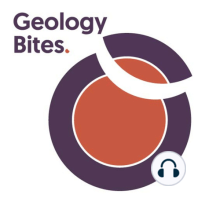28 min listen
Brian Upton on the Unique Rift Zone of South Greenland
FromGeology Bites
ratings:
Length:
26 minutes
Released:
Sep 2, 2022
Format:
Podcast episode
Description
Between 1.3 and 1.1 billion years ago, magma from the Earth's mantle intruded into a continent during the assembly of the supercontinent called Nuna. Through good fortune, the dykes and central complexes that resulted have been preserved in near-pristine condition in what is now the south of Greenland. The dykes are extraordinarily thick, and the central complexes contain an order of magnitude more exotic minerals than otherwise similar complexes around the world. In the podcast, Brian Upton describes what he found during over 20 seasons of field work there and explains how extreme fractionation of the magma might be responsible for the one-of-a-kind central complexes.
Brian Upton is Emeritus Professor of Geology at the University of Edinburgh. During his long and prolific research career, he has conducted field studies in many parts of the world, concentrating especially on the Arctic. But throughout his career he has continued to investigate the unique alkaline rocks of South Greenland. As he explains in the podcast, these rocks contain an unrivalled number of exotic minerals, many of them not known to occur anywhere else.
Web: geologybites.com
Twitter: @geology_bites
Insta: geologybites
email: geologybitespodcast@gmail.com
Brian Upton is Emeritus Professor of Geology at the University of Edinburgh. During his long and prolific research career, he has conducted field studies in many parts of the world, concentrating especially on the Arctic. But throughout his career he has continued to investigate the unique alkaline rocks of South Greenland. As he explains in the podcast, these rocks contain an unrivalled number of exotic minerals, many of them not known to occur anywhere else.
Web: geologybites.com
Twitter: @geology_bites
Insta: geologybites
email: geologybitespodcast@gmail.com
Released:
Sep 2, 2022
Format:
Podcast episode
Titles in the series (87)
Mike Searle on Why Mountains Exist by Geology Bites
